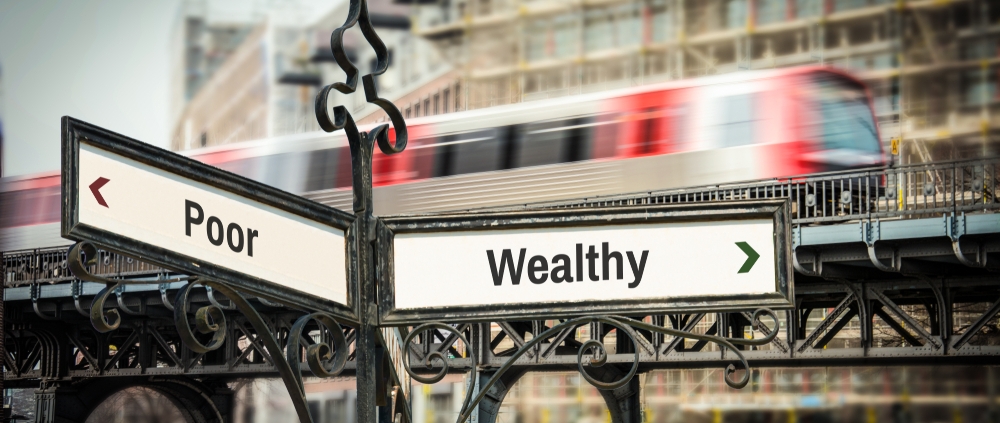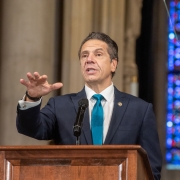The Wealth Gap: Why Economists Argue It Will Never Narrow and Its Consequences for Humanity
By Brian Figeroux, Esq.
The growing gap between the rich and the poor has been a central issue in economic discourse for centuries. Many economists argue that due to the fundamental rules of wealth accumulation, this divide will never significantly narrow. Structural advantages enjoyed by the wealthy—such as capital appreciation, access to financial instruments, political influence, and intergenerational wealth transfer—perpetuate economic inequality.
This article explores the economic mechanisms that keep the rich getting richer, examines why traditional solutions like taxation and social programs fail to close the wealth gap, and discusses the consequences for humanity, including economic instability, social unrest, and declining quality of life for the poor and middle class.
- Why the Wealth Gap Will Never Narrow
1.1. The Rules of Wealth Accumulation
Wealth follows certain economic rules that favor those who already have capital. These rules make it increasingly difficult for the poor to catch up.
- The Power of Compound Interest: Those with money can invest their wealth, allowing it to grow exponentially over time through stocks, real estate, and business ventures. The poor, living paycheck to paycheck, cannot afford to invest and benefit from compounding returns.
- Capital vs. Labor: In modern economies, capital (wealth from assets) grows faster than wages. Economist Thomas Piketty famously argued in Capital in the Twenty-First Century that r > g, meaning the rate of return on capital is greater than overall economic growth. This ensures that those who own capital (the rich) grow wealthier, while those who rely on wages (the poor) fall further behind.
- Intergenerational Wealth Transfer: The rich can pass down their wealth tax-free or at low tax rates, giving their descendants a head start. Meanwhile, the poor have little to pass on, ensuring continued economic stratification.
1.2. The Illusion of Social Mobility
Many believe that hard work and education allow individuals to move up the economic ladder. However, research shows that social mobility has significantly declined in many countries, particularly in the U.S. and U.K.
- Educational Inequality: Wealthy families can afford elite schools, private tutors, and debt-free college educations, leading to better job opportunities. Poor families struggle with underfunded public schools and student loan debt.
- Networking and Opportunity Hoarding: The rich control job opportunities, internships, and business deals, ensuring that high-paying jobs remain within elite circles.
- Discrimination and Systemic Barriers: Structural racism, sexism, and other biases block certain groups from economic advancement, keeping wealth concentrated within certain demographics.
1.3. The Failure of Government Policies
Governments attempt to redistribute wealth through taxation and social programs, but these efforts often fail due to loopholes, corruption, and elite resistance.
- Tax Avoidance by the Wealthy: Billionaires and large corporations exploit tax havens, offshore accounts, and legal loopholes to avoid paying their fair share of taxes.
- Weakening of Labor Protections: Declining union power and stagnant minimum wages ensure that the working class remains trapped in low-wage jobs.
- Political Influence: The wealthy fund political campaigns, lobby lawmakers, and shape policies to protect their interests, making meaningful economic reform nearly impossible.
Given these structural barriers, many economists argue that the gap between the rich and poor will only widen, rather than narrow.
- Consequences of a Permanent Wealth Gap
The concentration of wealth in the hands of a few has severe implications for society. As inequality grows, so do its social, political, and economic consequences.
2.1. Economic Instability and Crises
- Low Consumer Demand: A strong economy relies on consumer spending, but when wealth is concentrated at the top, the majority of people lack disposable income, slowing economic growth.
- Boom-Bust Cycles: Wealth concentration leads to speculative investments, increasing the risk of economic crashes like the 2008 financial crisis.
- Massive Debt Burdens: The poor rely on credit cards, payday loans, and student loans to survive, leading to financial crises at both personal and national levels.
2.2. Political Corruption and Erosion of Democracy
- Plutocracy Instead of Democracy: When the rich control campaign financing, media narratives, and policymaking, they override the needs of the majority.
- Authoritarianism and Elite Control: As economic inequality rises, governments often turn to authoritarian measures to suppress dissent, ensuring that wealth and power remain with the elite.
- Public Distrust in Institutions: People lose faith in governments, banks, and corporations when they see policies disproportionately favoring the wealthy.
2.3. Social Unrest and Revolutions
History has shown that extreme inequality leads to unrest, protests, and even revolutions.
- Protests and Mass Movements: The rise of Occupy Wall Street (2011), the Yellow Vest movement (France), and various labor strikes reflect growing frustration with inequality.
- Class Warfare: If economic disparities become too extreme, the working class may revolt against the elite, leading to violent conflicts.
- Political Extremism: Economic inequality fuels support for both far-left socialism and far-right nationalism, destabilizing societies.
2.4. Declining Quality of Life for the Poor
As the rich accumulate more wealth, the poor and middle class suffer deteriorating living conditions.
- Housing Crisis: Real estate speculation by the wealthy drives up housing prices, making rent and homeownership unaffordable for working-class families.
- Healthcare Disparities: The poor face limited access to healthcare, resulting in higher mortality rates and preventable diseases.
- Education Inequality: Wealthy children receive high-quality education, while the poor attend underfunded schools, perpetuating generational poverty.
2.5. Environmental Consequences
- Resource Hoarding: The wealthy consume disproportionate amounts of resources, exacerbating climate change and environmental destruction.
- Climate Inequality: The poor suffer the worst consequences of climate disasters, food shortages, and pollution, while the rich use their wealth to escape the effects.
- Corporate Greed Over Sustainability: Large corporations, driven by profit, resist environmental regulations that would protect the planet.
- Is There Any Hope for Change?
While many economists argue that wealth inequality is inevitable, some believe that policy changes and technological advancements can help reduce the gap.
3.1. Potential Solutions
- Universal Basic Income (UBI): Providing a guaranteed income to all citizens could alleviate poverty and boost economic participation.
- Wealth Tax: Implementing a progressive wealth tax on billionaires could fund social programs and reduce inequality.
- Debt Forgiveness: Canceling student loan and medical debt would relieve financial burdens on the poor and middle class.
- Stronger Labor Protections: Raising the minimum wage, strengthening unions, and enforcing workers’ rights would help balance economic power.
- Regulating the Super-Rich: Closing tax loopholes, eliminating offshore accounts, and breaking up monopolies would prevent extreme wealth hoarding.
3.2. The Role of Technology and Automation
- Decentralized Finance (DeFi): Blockchain technology and cryptocurrencies could reduce reliance on traditional banking, making financial systems more accessible.
- Automation and AI: If wealth from automation is redistributed equitably, it could provide financial security to all citizens.
- Conclusion
The gap between the rich and the poor is unlikely to narrow under the current economic system. The structural advantages of wealth accumulation ensure that the rich will continue to grow richer, while the poor struggle to survive. This widening inequality threatens economic stability, democracy, social cohesion, and even the environment.
While some policy solutions exist, political resistance from the elite makes meaningful change difficult. Without significant intervention, humanity may face worsening economic crises, social unrest, and global instability in the coming decades.





Leave a Reply
Want to join the discussion?Feel free to contribute!